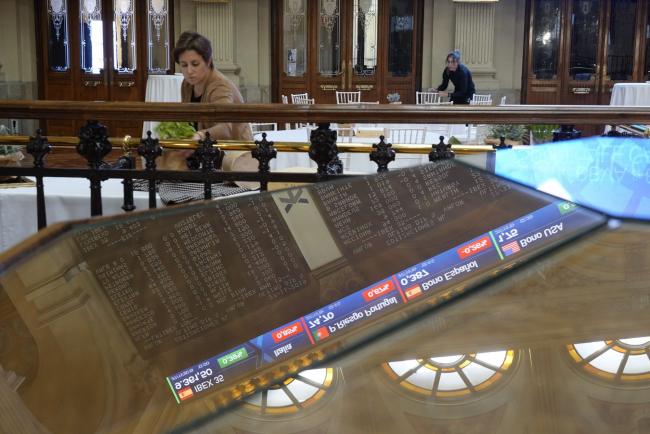(Bloomberg) -- After a brutal trading session on Thursday, Italian and Spanish securities regulators have banned short sales during Friday on some stocks.
The Spanish ban will affect 69 stocks, including all liquid stocks that fell more than 10% Thursday and all illiquid stocks that fell more than 20%, while in Italy 85 stocks will be affected by the ban.
Short selling in some Italian and Spanish securities will also be banned in all U.K. trading venues for the day, the U.K.’s Financial Conduct Authority said in a statement. A spokesman for the FCA declined to comment on whether the regulator would consider a ban on short sales of U.K. stocks.
Italy’s FTSE MIB plunged 17% on Thursday, while Spain’s IBEX 35 slumped 14%, both record losses, amid a global sell-off as measures announced by the European Central Bank and the U.S. to combat the economic effects of the coronavirus disappointed. Both benchmarks rose at least 3.3% as of 9:33 a.m. in Milan on Friday.
UniCredit SpA (MI:CRDI), Telecom Italia SPA (NYSE:TI), Banco Santander (MC:SAN) and Telefonica (MC:TEF) are among the companies that will be protected by the short-selling ban.
In Germany, short selling of stocks will not be banned for now, a spokesman for the Deutsche Boerse (DE:DB1Gn) said. The country’s benchmark index plunged 12% on Thursday. Switzerland’s SIX Exchange isn’t planning a ban as its market is functioning while Dutch market regulator AFM said it is monitoring the situation.
Short-selling restrictions were also put in place for some Asian markets, with South Korea’s Financial Services Commission going the furthest by banning short-selling of shares listed on Kospi, Kosdaq and Konex for six months. In Thailand, short sales were not banned, but rules are being adjusted for current market conditions, according to the President of the country’s stock exchange.
